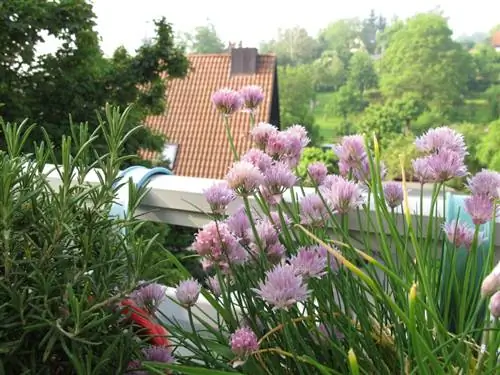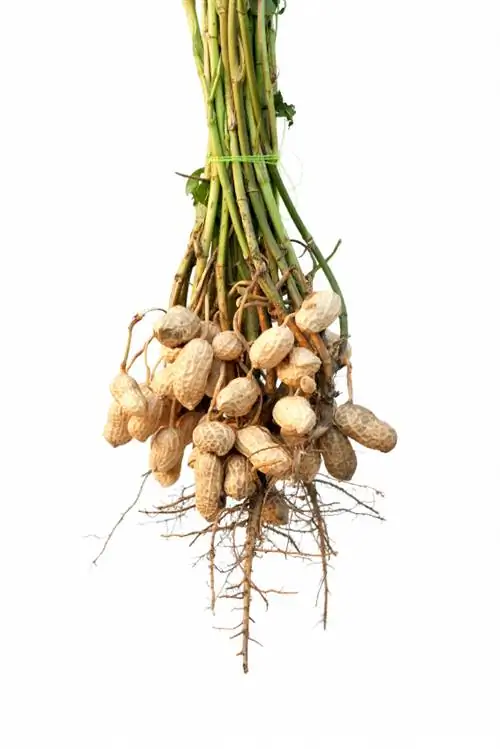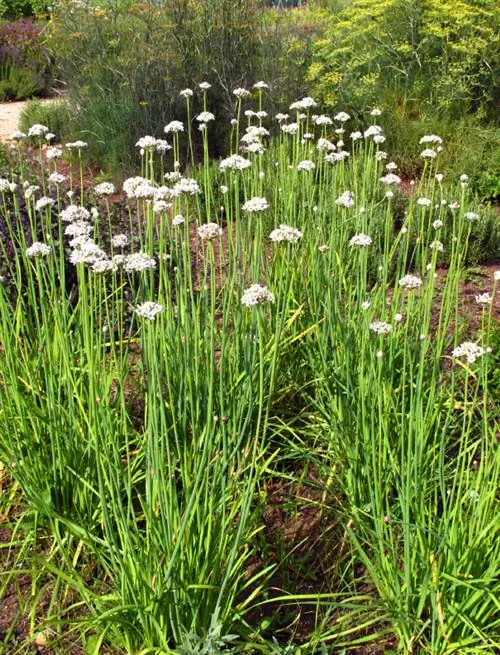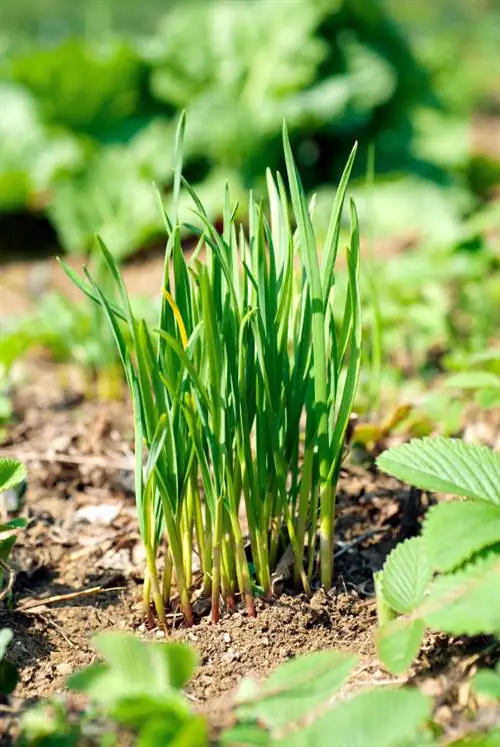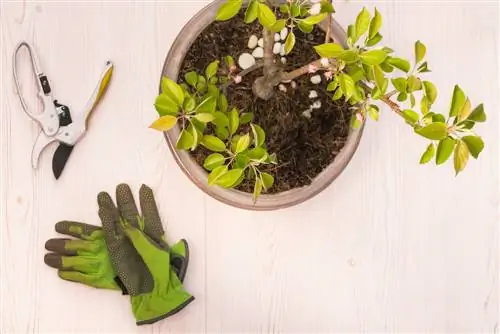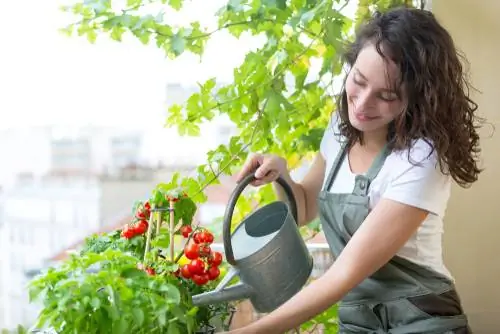- Author admin [email protected].
- Public 2023-12-16 16:46.
- Last modified 2025-06-01 06:02.
Chives (Allium schoenoprasum) are one of the easiest culinary herbs to care for, and the aromatic and vitamin-rich herb simply tastes best fresh. For this reason, chives should not be missing on any balcony - no matter how small they are. We'll show you how to properly care for the perennial plant - so it's guaranteed not to die again after just a few weeks.
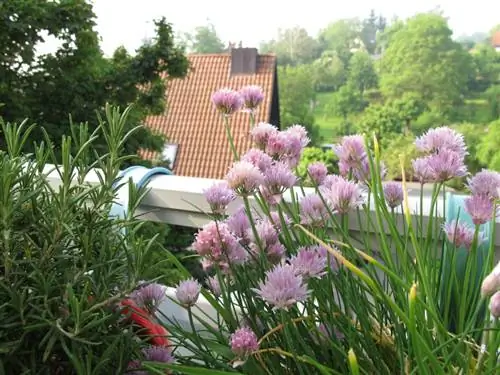
How do I care for chives on the balcony?
Growing chives on the balcony requires a partially shaded to sunny location, loose and nutrient-rich soil, regular watering, fertilization and cutting back the stalks. In winter, chives can overwinter outside if they are protected.
Location and substrate
Chives feel very comfortable in a pot, provided it is big enough. If you buy a small herb pot from the supermarket, plant it in a larger pot with fresh substrate as soon as possible. Chives need loose and nutrient-rich soil, so a commercially available universal soil (€7.00 on Amazon) or balcony plant soil is completely sufficient - these are usually already pre-fertilized. However, if possible, the plant should stand alone in a pot - so growing it in a balcony box together with other plants is not very suitable. Chives need a partially shaded to sunny location - but not full sun! - Location.
Care
Potted chives need to be watered and fertilized regularly. Keep the substrate evenly moist, but avoid waterlogging. The earth must not dry out. However, excessive moisture not only leads to waterlogging, but often also results in a heavy infestation of fungus gnats. The latter can be avoided if you add about a centimeter of sand to the top of the pot. Chives can easily be watered with tap water. Fertilize the plant approximately every four weeks during the vegetative phase with a liquid herbal or vegetable fertilizer added to the irrigation water.
Cutting and Harvesting
In principle, you can harvest chives all year round as long as they are not flowering. Flowering can be prevented by regularly cutting back the stalks - chives sprout again very quickly. Cut the stalks about two to three centimeters above the ground. Only use he althy and green shoots. By the way, both the flowers and the buds of chives are edible - try it out!
Overwintering chives on the balcony
Chives are hardy herbs and can therefore easily overwinter on the balcony. In late autumn, cut the stalks down to about two centimeters and cover the pot with pine branches or some brushwood. The pot itself can be wrapped with warming fleece to protect against frost. However, if you still want to harvest in winter, bring the pot in and place it on the windowsill.
Tips & Tricks
Leaves that look wilted or turn yellow are usually an indication that the plant is too dry. In some cases, however, waterlogging - and thus root rot - can also be the cause.

